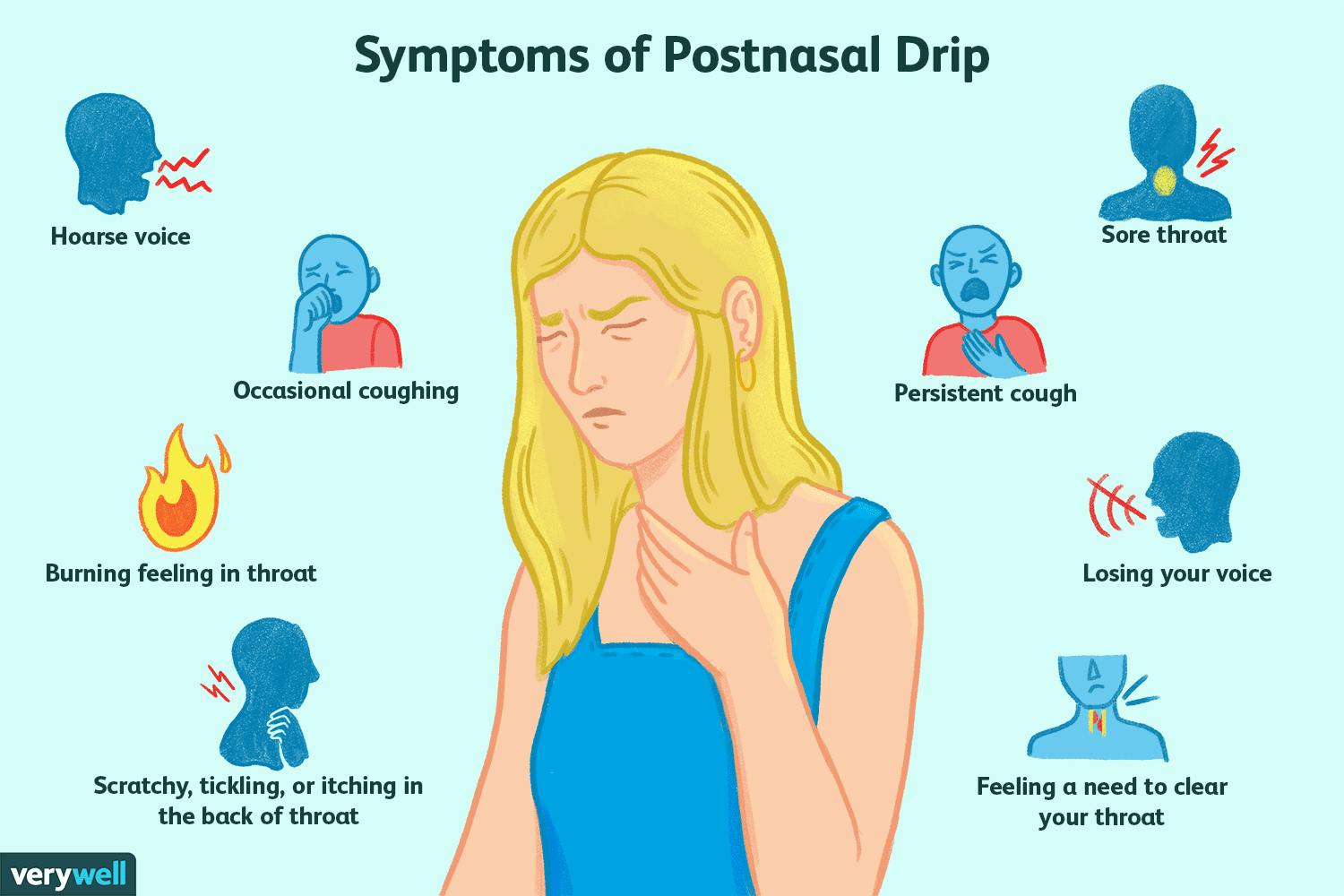Post Nasal Drip

Post nasal drip can be caused by a variety of things. Learn about the causes, symptoms, treatment, and prevention of this irritating condition. In addition to a cold, post nasal drip can also be caused by gastroesophageal reflux disease, or acid reflux. This condition occurs when acid from the stomach backwashes up the esophagus. The acid is extremely irritating to tissue outside the stomach, including the nasal passages, esophageal mucus, and the throat. Symptoms of this condition include post nasal drip, sore throat, persistent cough, and cough.
Symptoms
Postnasal drip is a common condition characterized by an excess of mucus that accumulates in the throat. It can accompany other symptoms such as sneezing and itchy eyes. In some severe cases, it may be the result of an infection. It is important to see a doctor as soon as possible to rule out infection and treat the condition.
If your symptoms do not clear up on their own, you may want to see an ENT. An ENT can diagnose post nasal drip and prescribe treatment for it.
Causes
Post-nasal drip is a common problem that can occur because of various reasons. It is triggered by allergies and other conditions that cause your sinuses to swell and produce excess mucus. It can also be caused by certain medicines or air irritants. If you think you are suffering from this condition, you should consult a doctor as soon as possible.
Post-nasal drip may also be caused by an infection. In this case, your healthcare provider will look for redness in the back of your throat and ask about any other symptoms. If the phlegm contains blood, it is indicative of a gastrointestinal or pulmonary infection and requires further evaluation. Food allergies can also cause postnasal drip.
Treatments
Post nasal drip can be treated with various therapies, based on the cause. If you suspect allergies, you can take antihistamine medicines, which can be taken as tablets or in a nasal spray. In some cases, you may be prescribed a corticosteroid nasal spray, which is effective in treating post nasal drip caused by allergic rhinitis. Another common treatment is to use saline washouts, which can help thin the mucus and stop the drip.
If you have persistent post-nasal drip, you should see an ENT specialist. He or she can prescribe medications or suggest procedures like nasal endoscopy, which involves passing a camera through the nose. This treatment can detect polyps or other problems inside the nose. Depending on the cause, post nasal drip can be treated in many ways, including home remedies.
Prevention
Prevention of post nasal drip involves keeping your sinuses open and clean. There are several methods to do this. Among them are washing your sheets frequently in hot water and getting rid of clutter and carpets. You can also reduce the production of mucus by cutting down on dairy products. But it is important to note that no scientific studies have been conducted to prove that this method helps.
Post nasal drip is often caused by allergens such as dust, mold, and pollen. Therefore, you should avoid exposure to these substances. Moreover, you should keep your home free from flowers, clean your house regularly, and sanitize your pillows and carpets. If you still experience the problem, it is important to visit a doctor. He or she will perform a thorough examination of your nose and throat. It is also important to tell your doctor about any allergies and other conditions that may be causing your symptoms. For instance, you may have a dairy or gluten allergy. In such a case, a physician can recommend a course of treatment for you.




